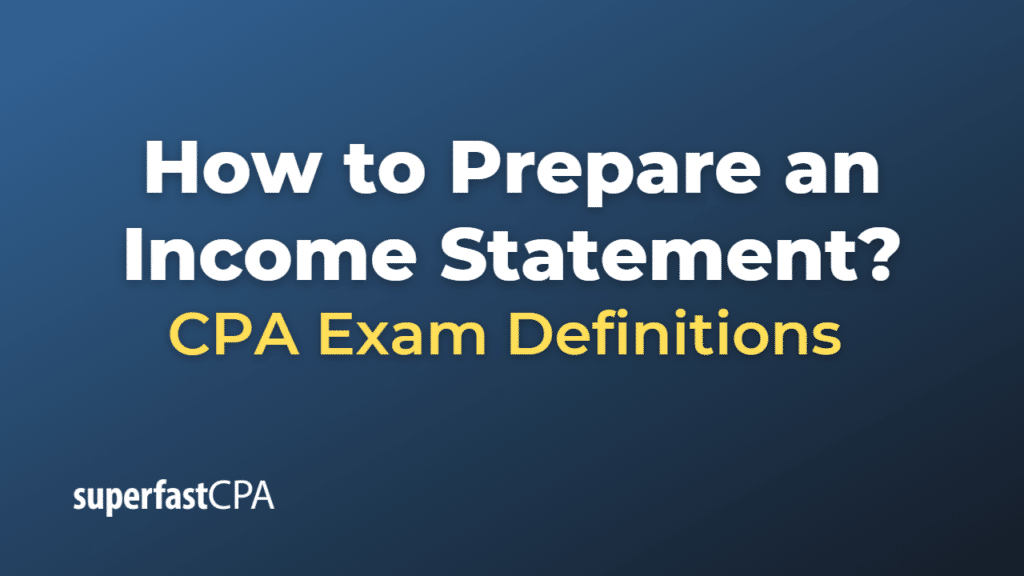How to Prepare an Income Statement
An income statement, also known as a profit and loss statement, is one of the three main financial statements used by businesses. It shows a company’s revenues, costs, and expenses over a specified period, providing information about the company’s profitability.
Here are the general steps to prepare an income statement:
- Header: Start with the company’s name, the title of the statement (Income Statement), and the period of time the statement covers.
- Revenues: Begin the body of the statement with the revenues. This could include sales revenue, service revenue, or other types of income related to the company’s main operations.
- Cost of Goods Sold (COGS): If applicable, subtract the cost of goods sold from the revenues. COGS includes direct costs attributable to the production of the goods sold by the company.
- Gross Profit: The result of revenue minus COGS is the gross profit. It shows the profitability of the company after considering the direct costs of producing its goods or services.
- Operating Expenses: Next, list and sum up operating expenses. This can include wages, rent, utilities, depreciation, and other costs associated with running the business but not directly tied to the production of goods or services.
- Operating Profit (EBIT): Subtract the total operating expenses from gross profit to get the operating profit, also known as earnings before interest and taxes (EBIT).
- Non-Operating Items: Deduct interest expenses (and add interest income, if any), then include any other non-operating income or expenses, such as gains or losses from investments.
- Pre-Tax Income: This gives you earnings before taxes (EBT), or pre-tax income.
- Taxes: Deduct tax expenses to arrive at the net income (also known as net earnings or net profit), which is the company’s income after all expenses, including taxes, have been deducted.
- Review and Finalize: Review all the entries and calculations for accuracy. Make sure you’ve accounted for all revenues and expenses.
This is a basic example. Depending on the complexity and specifics of a business, there may be other items to consider and include on the income statement, such as earnings from discontinued operations, minority interest, or extraordinary items.
Example of How to Prepare an Income Statement
Let’s create a simple income statement for a hypothetical company “XYZ Corp.” for the year ended December 31, 2023:
XYZ Corp. Income Statement For the Year Ended December 31, 2023
Revenues:
- Sales Revenue: $200,000
Cost of Goods Sold (COGS):
- COGS: -$120,000
Gross Profit:
- Gross Profit (Sales Revenue – COGS): $80,000
Operating Expenses:
- Salaries and Wages: -$20,000
- Rent: -$10,000
- Depreciation: -$5,000
- Other Operating Expenses: -$15,000
Operating Profit (EBIT):
- Operating Profit (Gross Profit – Operating Expenses): $30,000
Non-Operating Items:
- Interest Expense: -$3,000
Pre-Tax Income:
- Pre-Tax Income (Operating Profit – Non-Operating Items): $27,000
Taxes:
- Taxes (30% of Pre-Tax Income): -$8,100
Net Income:
- Net Income (Pre-Tax Income – Taxes): $18,900
This income statement shows that XYZ Corp. generated net income of $18,900 in the year ended December 31, 2023. This figure represents the profit after all costs and expenses, including COGS, operating expenses, interest expenses, and taxes, have been deducted from the company’s sales revenue.













